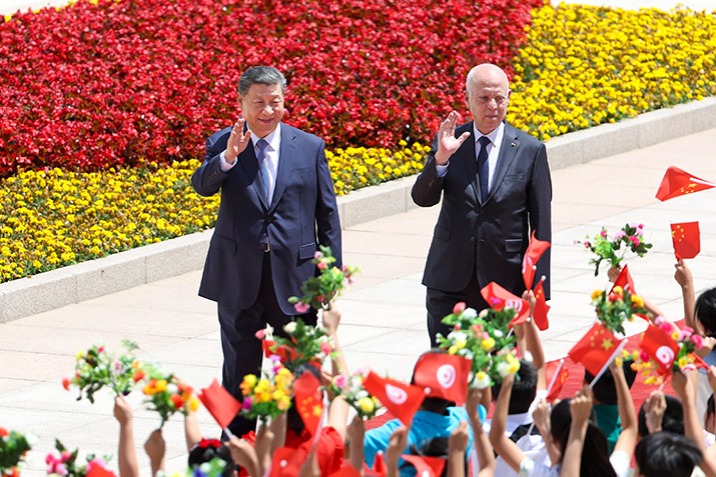Details of anti-espionage cases released to public

The details of a few anti-espionage cases have been disclosed by China's national security agency in order to strengthen public's awareness against spies and safeguard state security.
On Monday, National Security Day, the Ministry of State Security posted 10 cases of residents reporting spies through its official WeChat account, praising their ability of identifying espionage activities and actions in the protection of national interests.
One case showed that in December 2020, a company employee surnamed Wang reported to the ministry that an overseas institution allegedly collected a large number of confidential information about the production and operation of Chinese enterprises in the name of enterprise consulting and sent them overseas, resulting in the leakage of core data in important fields such as China's finance, technology and biomedicine.
The security agency attached great importance to the report and immediately checked the clues, finding that the institution had long accepted funding from a foreign government and had privately set up offices in China to engage in consulting business, but had not actually registered in China.
The institution cooperated and consulted with many domestic enterprises in the areas of electrical equipment, financial service, biotechnology and energy production, and then adopted the methods of spying and buying to illegally inquire the secret information of the enterprises.
In addition, the institution was discovered to have probed into China's business policy, the ministry said, adding which was likely to bring damage to the national security and corporate interests.
While taking urgent measures to block the behaviors of the institution, the ministry also rewarded Wang.
On Sunday, another 10 cases of damaging national security had been revealed online by the authority to tell the public to be vary of spies.
One case involved Liang Chengyun, a 79-year-old man who spent about three decades spying and once received an award from the United States for helping to collect large amounts of information related to China. He was given a life sentence by a Chinese court for espionage last year.
Liang's case has also been written into an annual work report of the Supreme People's Court, China's top court, showing the country's strong judicial determination against espionage activities and great effort to safeguard the national security.
- Former Shandon political advisor imprisoned for accepting bribes
- Australia launches studies program for China-Australia exchange
- Harbin Institute of Technology celebrates group student wedding with special diamonds
- Beijing hospital promotes clinical trial awareness and participation
- Community cinema: open-air magic in Yinchuan nights
- Drone captures rare moment: Porpoises frolic at sea


































